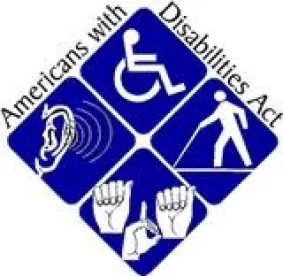The Americans with Disabilities Act (“ADA”) includes within its definition of “discriminate,” an employer’s failure to provide a reasonable accommodation to a qualified individual with a disability. But, is a failure to accommodate standing alone—absent an adverse employment action—enough to establish an ADA failure-to-accommodate claim? For example, if an employer fails to accommodate a wheelchair-bound employee by refusing to move her office a few feet closer to the entrance, has the employer violated the ADA? In this scenario, assuming the facts show that traveling the extra distance is just a mere inconvenience, the answer likely depends on whether an adverse employment action is a required element of a failure-to-accommodate claim.
Some courts, such as the Seventh Circuit, have stated that an adverse employment action is not a required element of a failure-to-accommodate claim. EEOC v. AutoZone, Inc., 630 F.3d 635 (7th Cir. 2010). Recently, however, in Exby-Stolley v. Bd. of County Commissioners, Case No. 16-1412 (Oct. 11, 2018), the Tenth Circuit disagreed and held that an adverse employment action is a necessary component of all discrimination claims under the ADA, including those based on a failure to accommodate.
In Exby-Stolley, the plaintiff, a health inspector, broke her arm, which limited her ability to conduct inspections and perform other job functions. As a result, she was temporarily given a part-time office job with the same pay (when worker’s compensation benefits were included). When she asked the County to create a new position for her, it denied her request but, according to testimony it presented, the County did not fire her or make any other changes to her employment status. County employees testified that they were planning to continue to look for ways to accommodate the plaintiff, but she resigned before other accommodations could be explored. The plaintiff filed an ADA claim for failure to accommodate, and the County argued to the jury that the plaintiff could not establish an ADA discrimination claim because she did not suffer an adverse employment action. The trial court instructed the jury that the plaintiff had to prove she suffered an adverse employment action to prevail on her failure-to-accommodate claim. The jury returned a verdict for the County after finding the plaintiff did not prove that she suffered an adverse employment action.
On appeal, the Tenth Circuit rejected the plaintiff’s argument that the jury instructions were erroneous and definitively held that an adverse employment action is a component of all ADA discrimination claims—even claims for failure to accommodate. The Tenth Circuit focused on the language of §§ 12112(a)-(b) of the ADA and held that those subsections read together require an adverse employment action to establish any type of ADA discrimination claim.
This holding that an adverse employment action is a required element of failure-to-accommodate claims means plaintiffs litigating in the Tenth Circuit, and potentially elsewhere, have one more hurdle to clear when asserting such claims. However, employers should be mindful of the fact that most courts, including the Tenth Circuit, liberally construe the phrase “adverse employment action,” and whether conduct rises to the level of an adverse employment action is often a fact-intensive inquiry.




 />i
/>i
